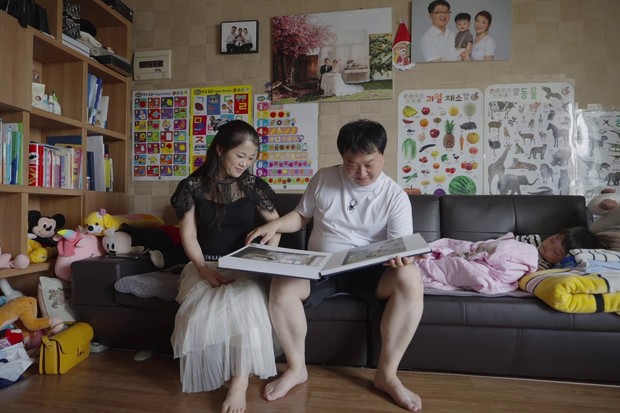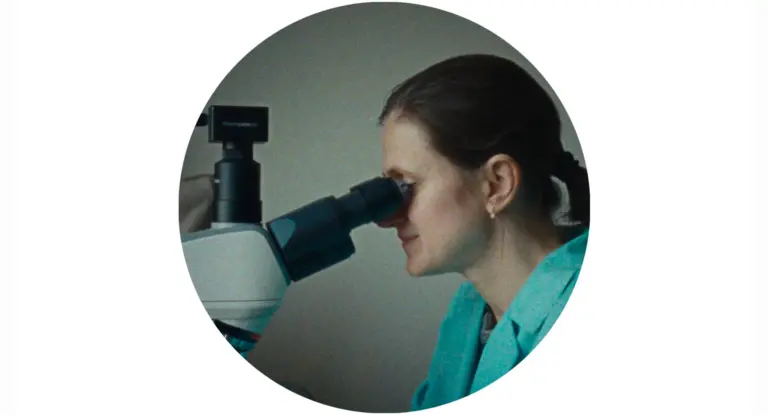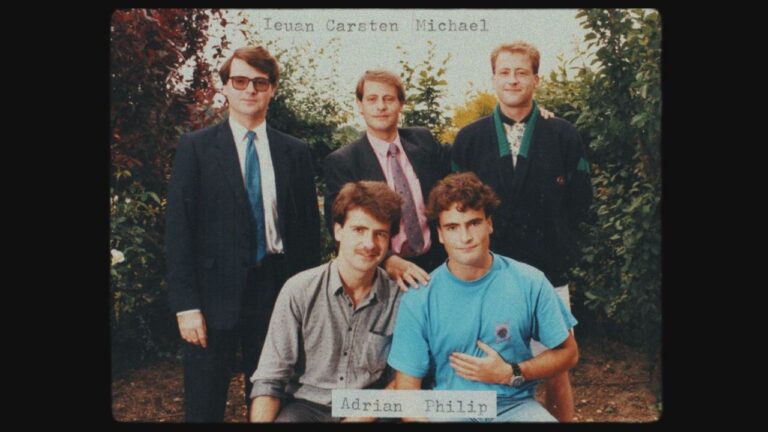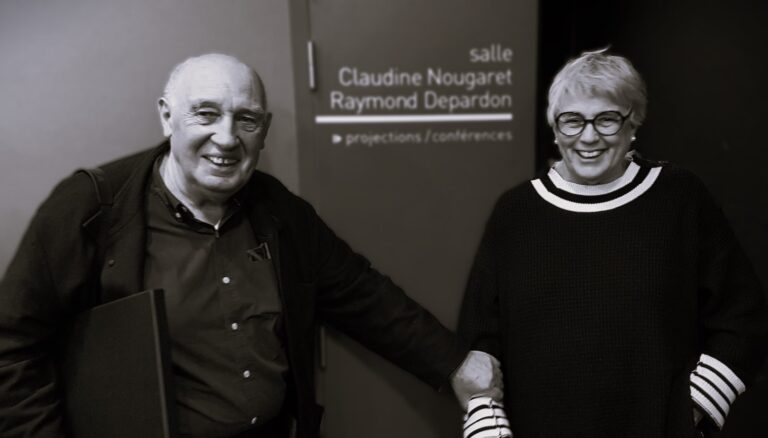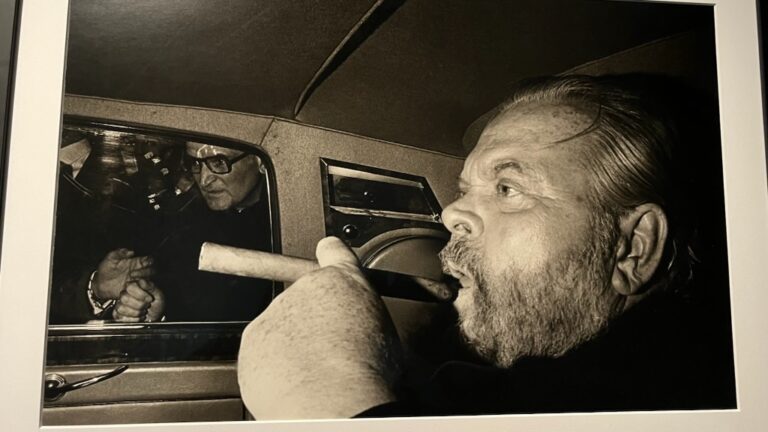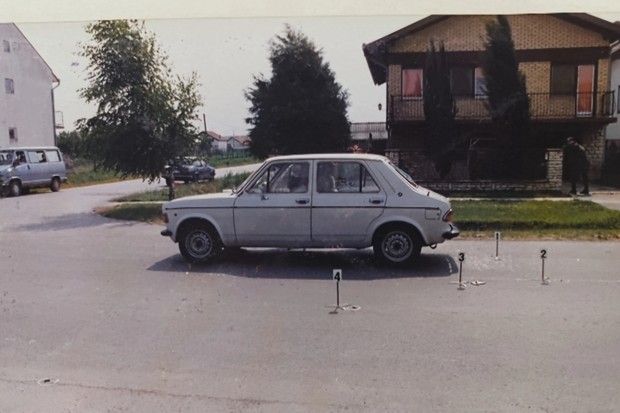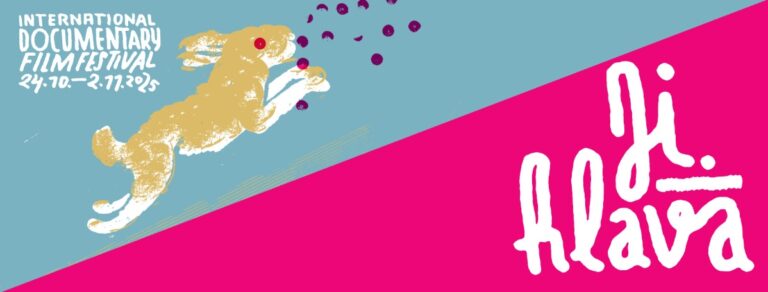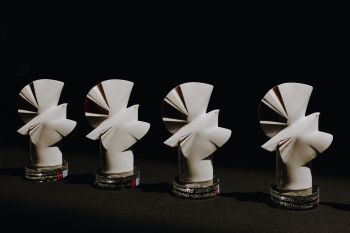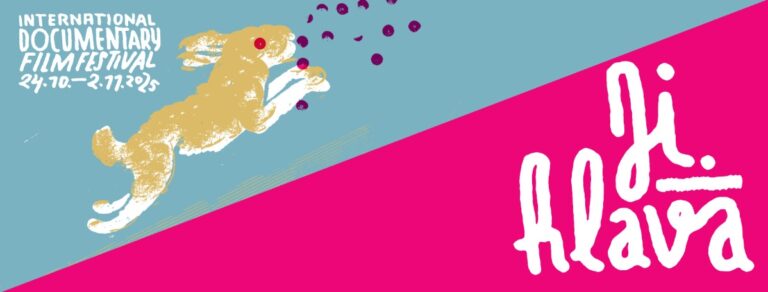The award-winning films of the 68th edition of DOK Leipzig have been announced. The seven Golden and two Silver Doves as well as various Partnership Awards were presented at the Schaubühne Lindenfels in Leipzig on Saturday.
In the International Competition Documentary Film, the Golden Dove Feature-Length Film went to Ivan Ramljak for “Peacemaker” (Mirotvorac | Croatia). This award-winning film looks at the beginnings of the war between Serbia and Croatia and a chief of police in Slavonia who was determined to mediate between the conflicting parties. “A specific event in a specific region was made into a film of universal importance,” the jury said in its statement. The 10,000-euro Golden Dove is sponsored by Mitteldeutscher Rundfunk. The award was presented by Thomas Beyer, editor in the documentary department at MDR.
The 3,000-euro Golden Dove Short Film went to Matilde-Luna Perotti for “After the Silence” (Después del silencio | Canada), about domestic sexual abuse. “This minimalist approach prioritizes listening to the unspoken, and the difficulty of receiving such a heavy testimony within a family setting,” said the jury.
The films that have earned Golden Doves in the International Competition Documentary Film qualify for nomination for the annual Academy Awards®, provided they meet the Academy’s standards.
The Silver Dove Feature-Length Film, sponsored by 3sat and awarded to the best feature-length documentary film by an emerging director, went to Gregor Brändli for “Elephants & Squirrels” (Switzerland). Sri Lankan artist Deneth Piumakshi Veda Arachchige discovers the collection of one of her country’s indigenous communities in Switzerland and gets involved in its restitution. The jury praised the film “for portraying step by step an ultimately successful struggle”. Markus Dillmann (3sat) presented the 6,000-euro award to the filmmaker.
The 1,500-euro Silver Dove Short Film, sponsored by the independent Saxon State Media Agency (SLM) and awarded to the best short documentary by an emerging director, went to “String Pieces” (Garak | South Korea) by Vatae Kimlee. In this film, a student comes across a recording of a conversation in which her grandparents talk about their past in the South Korean city of Incheon. The jury highlighted the film for “creatively mixing animation and documentary.” The award was presented by Katja Röckel from the SLM’s Media Council.
The winners of the International Competition Documentary Film were selected by Heleen Gerritsen, Alain Kassanda, Annie Ohayon-Dekel, Kazuhiro Soda and Jim Stark.
In the International Competition Animated Film, the 3,000-euro Golden Dove Feature-Length Film went to Seth Scriver and Peter Scriver for “Endless Cookie” (Canada). They visualise their story with originality and a great deal of wit: one of the half-brothers lives in Toronto, the other in Shamattawa, a community of the Indigenous Cree people. “This is a film that draws strength and hope from the chaos of everyday life. A story about filmmaking, intergenerational wisdom and love,” said the jury members Betina Kuntzsch, Aneta Ozorek and Jonatan Schwenk.
The Golden Dove Short Film, which includes 1,500 euros, went to Matea Radic for “Paradaïz”(Canada). In this film, the director looks back on her childhood during the war in Bosnia and on the fond and traumatic memories she associates with that time. “The film stands out for its vulnerability, its imaginative and relatable visuals and the playfulness in its approach. A touching voice given to all who had to leave their home because of war,” the jury said in its statement.
The film that earns the Golden Dove Short Film qualifies for nomination for the annual Academy Awards®, provided it meets the Academy’s standards.
In the German Competition Documentary Film, the Golden Dove Feature-Length Film went to “Active Vocabulary”(Germany) by Yulia Lokshina. Based on a story of a young teacher, Yulia Lokshina’s “Active Vocabulary” examines how the Russian state uses schools to further its own agenda. “With great precision and skill, Yulia Lokshina translates experiences in the struggle for truth into a powerful cinematic language, creating a space that challenges us to resolutely confront our fear of surveillance,” praised the jury. This 10,000-euro award is donated by Doris Apell-Kölmel and Michael Kölmel.
The Golden Dove Short Film, which includes 1,500 euros, went to Jana Rothe for “Boma a Bopa” (Luxembourg, Germany), an observation of everyday life and a journey back in time to the youth of her own grandparents. “Precisely framed, the film documents spaces that point beyond the visible, spaces where time seems to stand still. A film that faces the end of life with great tenderness – poignant, playful, touching,” said jury members Maike Mia Höhne, Gerd Kroske and Ines Weizman.
The short film “Cold Call” (Germany) by Stefanie Schroeder received an honourable mention.
The Golden Dove in the Audience Competition was presented to the documentary film “Cutting Through Rocks” (Uzak yollar | USA, Iran, Germany, Netherlands, Qatar, Chile, Canada) by Sara Khaki and Mohammadreza Eyni. the protagonist Sara advocates feminist values in her rural community in northwestern Iran and decides to be the first woman in the history of her community to run for the local council. “The film tells Sara’s story from the most intimate and private angles, creating moments of lightness and heaviness, enthusiasm and disappointment showing that ‘unconventional actions have consequences,’ as the protagonist herself puts it,” said the jury members Henry Engelberg, Fine Fritzke, Lara Goldberg, Višnja Jurić-Krappmann and Moritz Mahltig. This 3,000-euro award is granted pro rata by Leipziger Gesellschaft zur Förderung der Filmkunst e. V. and the Leipzig Stiftung.
Earlier, on Saturday afternoon, ten Partnership Awards were presented at the Schaubühne Lindenfels.
Patience Nitumwesiga received the 2,000-euro ver.di Prize for Solidarity, Humanity and Fairness for “The Woman Who Poked the Leopard” (UG, ZA, DE, US). The filmmaker was also awarded the 4,000-euro DEFA Sponsoring Prize granted by the DEFA Foundation.
The 3,000-euro MDR Film Prize for an outstanding eastern European documentary film went to Anastasiya Miroshnichenko for “Welded Together” (FR, NL, BE).
The 2,000-euro Prize of the Interreligious Jury went to Srđan Kovačević for “The Thing to Be Done” (Ono što treba činiti | HR, RS, SI). This award is sponsored by the VCH Hotel Michaelis in Leipzig as well as the Interreligious Round Table and the Oratorium Leipzig. The jury also gave an honourable mention to Jennifer Chiu for “Clan of the Painted Lady”.
The Young Eyes Film Award was presented to “Fantastique” (BE, FR, NL) by Marjolijn Prins. This 2,000-euro award is sponsored by the European Foundation of the Rahn Dittrich Group for Education and Culture and presented by the youth jury in cooperation with LFD – Fachstelle für Medien und Bildung.
The Prize of the International Film Critics (FIPRESCI Prize) went to “The Red Moon Eclipse” (L’éclipse de la lune rouge | BE) by Caroline Guimbal.
The mephisto 97.6 Award went to the short animated film “Once in a Body” (Una vez en un cuerpo | CO, US) by María Cristina Pérez.
For the first time, the jury comprised of prisoners at the Juvenile Detention Centre Regis-Breitlingen presented two awards. The Gedanken-Aufschluss Documentary Film award went to “Sediments” (Sedimente | CH, DE) by Laura Coppens. The Gedanken-Aufschluss Animated Film award went to “Clot” (Klonter | BE) by Levi Stoops.
The film.land.sachsen Prize for Film Culture in Rural Areas, presented in cooperation with the Filmverband Sachsen e.V., went to Karoline Rößler for “Intersection – It’s Political” (Intersection – Alles ist politisch | DE).
The Film Prize Leipziger Ring honours an outstanding documentary film about human rights, democracy or civil engagement. It is granted by the Stiftung Friedliche Revolution and has a value of 2,500 euros. This award was presented to Juan Camilo Cruz for “A Simple Soldier” (UA, US, UK) on Saturday morning at the Academy of Fine Arts Leipzig (HGB).
Photo: Susan Bargas Gomez.



